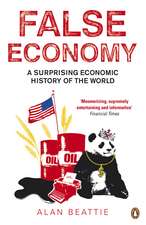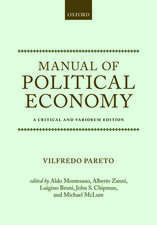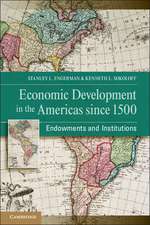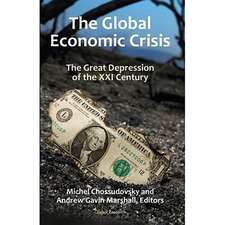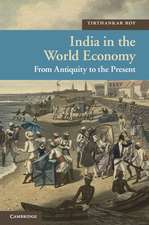Industrial Constructions: The Sources of German Industrial Power: Structural Analysis in the Social Sciences, cartea 9
Autor Gary Herrigelen Limba Engleză Paperback – 14 mai 2000
| Toate formatele și edițiile | Preț | Express |
|---|---|---|
| Paperback (1) | 391.38 lei 6-8 săpt. | |
| Cambridge University Press – 14 mai 2000 | 391.38 lei 6-8 săpt. | |
| Hardback (1) | 1045.96 lei 6-8 săpt. | |
| Cambridge University Press – 23 noi 1995 | 1045.96 lei 6-8 săpt. |
Din seria Structural Analysis in the Social Sciences
-
 Preț: 411.44 lei
Preț: 411.44 lei -
 Preț: 232.67 lei
Preț: 232.67 lei -
 Preț: 394.00 lei
Preț: 394.00 lei -
 Preț: 195.77 lei
Preț: 195.77 lei -
 Preț: 306.57 lei
Preț: 306.57 lei -
 Preț: 226.46 lei
Preț: 226.46 lei -
 Preț: 289.30 lei
Preț: 289.30 lei -
 Preț: 287.48 lei
Preț: 287.48 lei -
 Preț: 238.07 lei
Preț: 238.07 lei -
 Preț: 351.15 lei
Preț: 351.15 lei -
 Preț: 338.80 lei
Preț: 338.80 lei - 11%
 Preț: 546.03 lei
Preț: 546.03 lei -
 Preț: 434.92 lei
Preț: 434.92 lei -
 Preț: 286.30 lei
Preț: 286.30 lei -
 Preț: 378.11 lei
Preț: 378.11 lei -
 Preț: 323.65 lei
Preț: 323.65 lei -
 Preț: 334.16 lei
Preț: 334.16 lei -
 Preț: 284.56 lei
Preț: 284.56 lei -
 Preț: 236.40 lei
Preț: 236.40 lei -
 Preț: 349.80 lei
Preț: 349.80 lei -
 Preț: 300.79 lei
Preț: 300.79 lei -
 Preț: 421.39 lei
Preț: 421.39 lei -
 Preț: 284.56 lei
Preț: 284.56 lei -
 Preț: 368.31 lei
Preț: 368.31 lei - 11%
 Preț: 520.83 lei
Preț: 520.83 lei -
 Preț: 277.97 lei
Preț: 277.97 lei -
 Preț: 381.45 lei
Preț: 381.45 lei - 11%
 Preț: 646.96 lei
Preț: 646.96 lei -
 Preț: 250.30 lei
Preț: 250.30 lei -
 Preț: 208.61 lei
Preț: 208.61 lei
Preț: 391.38 lei
Nou
Puncte Express: 587
Preț estimativ în valută:
74.90€ • 81.33$ • 62.92£
74.90€ • 81.33$ • 62.92£
Carte tipărită la comandă
Livrare economică 23 aprilie-07 mai
Preluare comenzi: 021 569.72.76
Specificații
ISBN-13: 9780521778596
ISBN-10: 052177859X
Pagini: 496
Ilustrații: 5 maps 14 tables
Dimensiuni: 152 x 229 x 28 mm
Greutate: 0.68 kg
Ediția:Revised
Editura: Cambridge University Press
Colecția Cambridge University Press
Seria Structural Analysis in the Social Sciences
Locul publicării:New York, United States
ISBN-10: 052177859X
Pagini: 496
Ilustrații: 5 maps 14 tables
Dimensiuni: 152 x 229 x 28 mm
Greutate: 0.68 kg
Ediția:Revised
Editura: Cambridge University Press
Colecția Cambridge University Press
Seria Structural Analysis in the Social Sciences
Locul publicării:New York, United States
Cuprins
1. Introduction: problems with the German model; 2. Blending in: decentralized industrialization in Germany; 3. Repositioning organized capitalism into regions: autarkic industrial order in Germany; 4. The national context: 1871–1945; 5. Return to regions: the development of the decentralized industrial order since 1945; 6. Autarkic industrial order: 1945–1994; 7. The national context: 1945–1994; Notes; List of interviewees; Bibliography; Appendix: Maps.
Recenzii
"No brief review can do justice to the wealth of detail and the broad range of sources with which this thesis is supported, backed as it is by footnote discussions that add 50% to the length of the book....this very important contribution will make it impossible, at least in the English language literature, to neglect in future the role of the nonautarkic industries in the economic rise of Germany....Backed, as they are in this case, by rich detail and knowledgeable insight, they make an important contribution that no one in the future will be able to ignore." Sidney Pollard, American Journal of Sociology
"...Gary Herrigel has produced an excellent history..." David Knoke, Contemporary Sociology
"...it provides a solid basis for understanding the history of technology and industrial policy in Germany." Edmund N. Todd, Technology and Culture
"...Herrigel provides a valuable overview of some recent research on Germany both past and present.... Clearly, this book should interest a wide range of economists, historians, and political scientists." Journal of Economic History
"Herrigel provides a valuable overview of some recent research on Germany both past and present. Of particular importance is the wealth of German-language research considered in this book, since that portion of the historical literature frequently escapes the attention of the Anglophone audience. Clearly, this book should interest a wide range of economists, historians and political scientists." Caroline Fohlin, The Journal Economic History
"Herrigel's analysis is at once informative....Herrigel has written a remarkably good book. He explicitly disavows any intention of presenting a general theory of German industrialization, and he does not present himself as an economist." K. Austin Kerr, H-Net Reviews
"...Gary Herrigel has produced an excellent history..." David Knoke, Contemporary Sociology
"...it provides a solid basis for understanding the history of technology and industrial policy in Germany." Edmund N. Todd, Technology and Culture
"...Herrigel provides a valuable overview of some recent research on Germany both past and present.... Clearly, this book should interest a wide range of economists, historians, and political scientists." Journal of Economic History
"Herrigel provides a valuable overview of some recent research on Germany both past and present. Of particular importance is the wealth of German-language research considered in this book, since that portion of the historical literature frequently escapes the attention of the Anglophone audience. Clearly, this book should interest a wide range of economists, historians and political scientists." Caroline Fohlin, The Journal Economic History
"Herrigel's analysis is at once informative....Herrigel has written a remarkably good book. He explicitly disavows any intention of presenting a general theory of German industrialization, and he does not present himself as an economist." K. Austin Kerr, H-Net Reviews
Descriere
Herrigel challenges the Chandlerian, Gerschenkronian, and Schumpetarian approaches to Germany's economic history.

